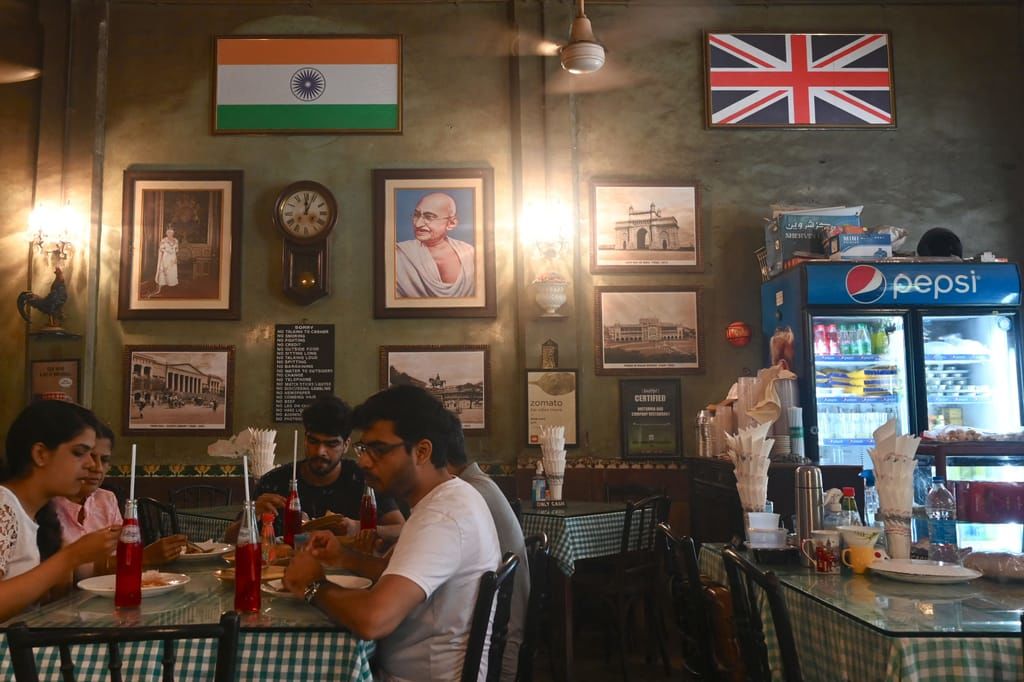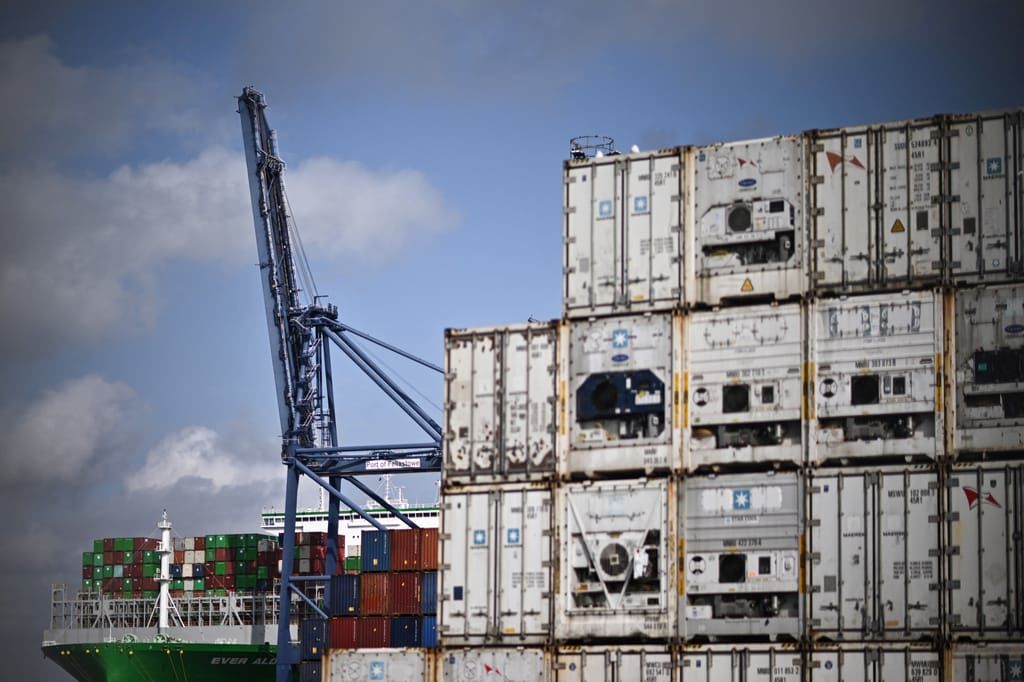
Crunch time for multibillion UK-India deal as elections loom
Britain and India are still far apart, as long-running talks on a major trade deal enter their next phase with a clock ticking in the background.
With negotiations continuing this week, and crucial elections in India looming in 2024, the two sides face calls to budge on key sticking points, or risk losing out on billions in trade.
A culture clash is partly at the heart of the impasse. India is satisfied with doing an interim deal that serves as a foundation for ever-deepening ties between the two economies. But the U.K. is resistant to forging a pact that looks half-finished and doesn’t fully deliver for its key sector — services.
Big trade-offs also remain on visas and mobility for Indian professionals, and market access, making negotiations difficult, according to four people familiar with the talks.
“The time has come to put a few more cards on the table,” a person with direct knowledge of the talks told POLITICO, and potentially “jump together” into a deal. They requested anonymity to speak frankly about the negotiations.
Both sides are working to go further and put “a more substantive offer” together ahead of the eighth round of negotiations in Delhi this week, the same person said.
'Single biggest thing'
A deal with India is a key political goal of U.K. Prime Minister Rishi Sunak, who has set it as a top priority for his Business and Trade Secretary Kemi Badenoch.
While the U.K.'s ongoing negotiations to join the Indo-Pacific trade bloc CPTPP are important geopolitically, India is the larger economic prize. Its economy is growing rapidly and promises to be the third largest in the world at $7 trillion by the end of the decade. Trade between the two countries surged by £11 billion in roughly the past year.
Getting a trade deal with India is “the single biggest thing in 2023,” said a U.K. Foreign Office official. “If we could get nothing else signed other than a [free-trade agreement], that would be great.”
Yet the “two sides seem far apart on several issues” after “no progress” was made in talks in London in early February, said a senior business person close to the talks. They were granted anonymity to speak openly about ongoing negotiations.
India’s High Commissioner to the U.K. Vikram Doraiswami, has been telling industry that India "has put a very good deal on the table,” they said.
“There has been some positive movement since the early February negotiating round,” said a second senior business person familiar with the talks, citing progress made during the meetings. Yet there is “lots still to do.”
 London is somewhat wary of an interim deal
London is somewhat wary of an interim deal
There is “still a big trade-off to be done” on worker mobility, said a third U.K. business leader briefed on the talks. “Trade negotiators will get very touchy about this and say we don't negotiate visas,” they explained, but “if the U.K. wants as deep a deal as it appears to want, then there has to be something — whether it's in trade negotiations or talks you have alongside those — around access to the labor market for, particularly, younger Indian nationals.”
Business mobility is not the same as immigration, the Department for Business and Trade, pointed out, noting business mobility covers temporary entry to work for a specific time period. "Immigration is not routinely discussed in trade negotiations," said a department spokesperson, pointing out "any agreement would be consistent with the points-based immigration system, subject to collective Cabinet agreement.”
Services situation
The role of services in the deal is another crucial aspect for the two sides to get stuck into this week.
The U.K. and India are “fundamentally services-based economies,” said the person quoted at the top of this article — and firms in both countries “need to be convinced” by their respective governments that the pact won't hurt them.
Delhi has recently smoothed the way for the U.K.’s services sector to make inroads in India. The government has introduced a new law that would allow cross-border data flows. Last week the country’s legal regulator made a “landmark” ruling to allow foreign lawyers and law firms to practice in India as long as they register locally.
Indian Prime Minister Narendra Modi’s government also unveiled a “very encouraging” budget last month ahead of the country’s 2024 elections, said Nicola Watkinson, a managing director at TheCityUK — a financial and professional services industry association. Delhi increased the government’s capital investment by 33 percent — 3.3 percent of GDP — spurring a “very strong interest from the U.K. in becoming more engaged in some of the investment opportunities.”
Yet there are still “bits that are missing” from the trade pact as it stands, said the third senior business figure quoted above, including market access on services. “Anything that gives half-decent market access on services would be a first for India,” they added.
India is negotiating trade deals with the EU and several other countries in tandem. If the “U.K. has got quite generous market access to things like services, they're going to want the same,” the same business person said. “Clearly what's agreed with the U.K. will shape what happens with the EU.”
London and Delhi’s negotiators are “getting into the nitty-gritty,” they added, with final chapters on tariffs, rules of origin and market access on goods also yet to be agreed on. “This is where there are compromises and both sides have to meet.”
Shallow deal
Negotiators must also face up to the fact that both sides have somewhat differing visions for what the deal will achieve.
India “has not had a particularly strong culture of doing deep trade agreements,” the third person said, citing a shallow deal with Switzerland and an interim deal with Australia signed in 2021 that is being deepened in further trade talks this year.
London is somewhat wary of an interim deal. If the U.K. agrees to a similar stop-gap arrangement, there is a “danger that it becomes the Scotch Whisky deal,” said a former adviser to No. 10 Downing Street, citing an expected lowering of India’s 150 percent whisky tariffs. “But the counter to that is that the deal is a sign of progress — a start — and the trade relationship can be built on moving forward.”
 Britain's biggest container port, Felixstowe
Britain's biggest container port, Felixstowe
There’s also the elections factor. New Delhi has a packed calendar — it’s hosting the G20 summit in September and gearing up for big federal elections in 2024. That’s raising concern among a number of its trade partners that negotiations will get bogged down. Sunak’s administration itself has only a short window before it heads into elections expected in late 2024.
“An interim agreement is likely this year, with some sort of commitment to negotiate a full-blown [free-trade agreement] after the federal elections next year,” said a fourth business person briefed on the talks citing the tight timeline to agree a pact. “That would allow meaningful services opening to be negotiated in a sensible timeline,” they said, noting that the two sides have, in that case, just months to get it done.
With labor issues, visas and services access yet to be resolved, neither country should be “aiming to have a Christmas tree deal with all the baubles,” the person quoted at the top of this article said.
"The U.K. has come to the table with high ambitions in areas such as goods market access, services, and investment," said the business and trade department spokesperson. The government said it refuses to be bound by a deadline and will only sign a deal in the best interest of the British people and the economy.










